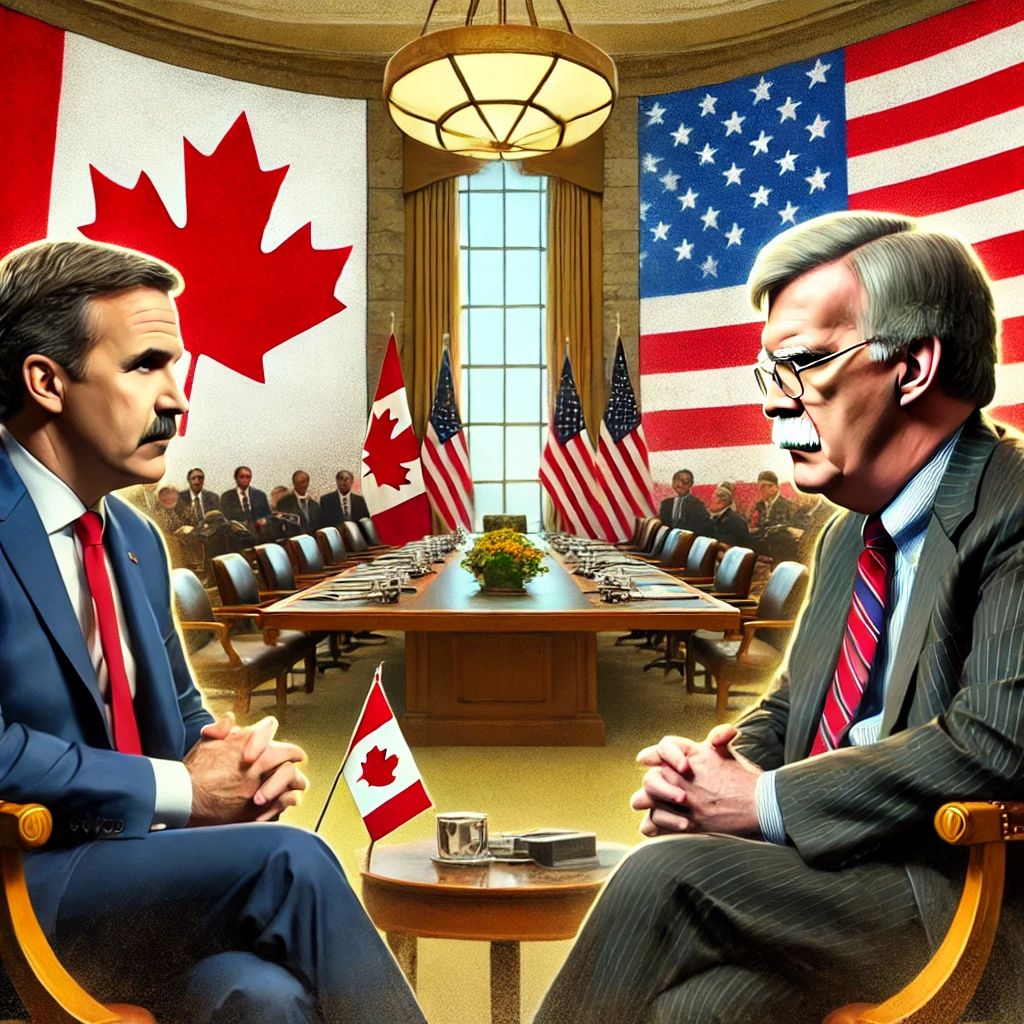
John Bolton, former U.S. National Security Adviser, is urging Canadian Prime Minister Mark Carney to avoid mirroring Donald Trump’s rhetoric in future trade and tariff discussions. He warns that such an approach could further strain the already fragile Canada-U.S. relationship.
Bolton, speaking on The West Block with Mercedes Stephenson, stated that relations between Trump and Canada under Carney “can’t get much worse” than they were during Justin Trudeau’s tenure. However, he emphasized that Carney must choose his words carefully in any dealings with Trump.
“He can take any approach he wants on substance, but he shouldn’t sound like Donald Trump,” Bolton advised. “You’re not going to improve things by trying to match Trump’s rhetoric. Number one, no sane person can do it, and number two, it’s not going to help get a better outcome.”
Trade War and Canada’s Position
Bolton referenced White House Press Secretary Karoline Leavitt’s recent comment that Canada is “a neighbour, a partner … perhaps a competitor now” as evidence that language plays a critical role in international relations.
Meanwhile, Canadian officials—including Ontario Premier Doug Ford and federal ministers Dominic LeBlanc and François-Philippe Champagne, who remain in Carney’s cabinet—are pushing for further trade negotiations. Following a meeting with U.S. Commerce Secretary Howard Lutnick, they expressed confidence in securing a favorable trade deal.
As the trade war escalates, Canada is preparing reciprocal tariffs on U.S. goods, set to take effect April 2.
Carney’s Response to Trump’s Annexation Talk
During his first press conference as Prime Minister, Carney stated he was open to discussions with Trump on trade and bilateral issues but had no immediate plans to visit Washington.
He also dismissed Trump’s repeated calls to make Canada the 51st U.S. state—a claim echoed by Trump’s allies and administration officials—calling it “crazy.”
“We will never, ever, in any way, shape, or form be part of the United States,” Carney declared.
Bolton called any discussion of annexation “completely ridiculous,” noting that Trump has repeatedly mocked Trudeau, referring to him as “Governor” rather than Prime Minister.
Trump’s Trade Distractions and Market Impact
Trump recently described the Canada-U.S. border as an “artificial line” drawn by “some guy years ago”—ignoring the 1818 British-American border agreement. Bolton dismissed this rhetoric as a reflection of Trump’s historical ignorance and suggested it is a political distraction rather than a serious policy stance.
“It’s clear that U.S. businesses see this trade war as a long-term economic threat,” Bolton said. He pointed out that Trump’s tariffs have triggered stock market declines, declining consumer confidence, and business uncertainty, forcing corporations to pause hiring and investment decisions.
“He’s trying to distract his base,” Bolton added, suggesting that Trump’s annexation threats are a smokescreen for economic instability.
Bolton: Trump’s One-Dimensional Strategy Could Be Exploited by Putin
Bolton argued that Trump’s lack of a grand strategy in trade negotiations is evident, dismissing the idea that he is engaging in “three-dimensional chess.”
“This is not sophisticated strategy. It’s one-dimensional, regular chess played one move at a time, with no thought beyond that,” Bolton said.
He also warned that Russian President Vladimir Putin could take advantage of this short-term thinking in direct negotiations with Trump over the war in Ukraine.
“Putin doesn’t want to negotiate with lesser figures in the Trump administration,” Bolton said. “He thinks he knows how to manipulate Trump and wants a one-on-one conversation to see if he can do that.”
As tensions rise over trade, tariffs, and international diplomacy, all eyes remain on how Carney will navigate Canada’s relationship with Trump’s unpredictable White House.





